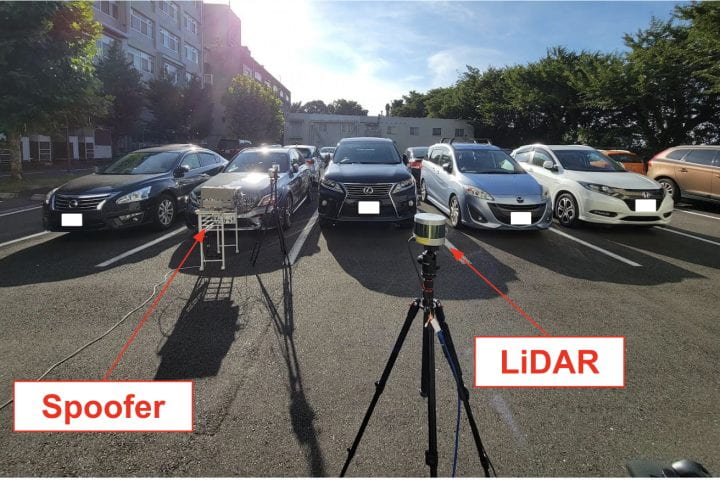Autonomous vehicle technology vulnerable to road object spoofing and vanishing attacks (UCI News)
UC Irvine researchers find security flaws in first- and next-generation LiDAR systems

Irvine, Calif., Feb. 29, 2024 — A University of California, Irvine-led research team has demonstrated the potentially hazardous vulnerabilities associated with the technology called LiDAR, or Light Detection and Ranging, many autonomous vehicles use to navigate streets, roads and highways.
Computer scientists and electrical engineers at UCI and Japan’s Keio University have shown how to use lasers to fool LiDAR into “seeing” objects that are not present and missing those that are – deficiencies that can cause unwarranted and unsafe braking or collisions.
In a presentation today at the Network and Distributed System Security Symposium in San Diego, lead author Takami Sato, UCI Ph.D. candidate in computer science, shared the results of a study in which he and his colleagues investigated spoofing attacks on nine commercially available LiDAR systems, finding that first-generation and even later generation versions exhibit safety deficiencies.
….
“The findings in this paper unveil unprecedentedly strong attack capabilities on LiDAR sensors, which can allow direct spoofing of fake cars and pedestrians and the vanishing of real cars in the AV’s eye. These can be used to directly trigger various unsafe AV driving behaviors such as emergency brakes and front collisions,” said senior co-author Qi Alfred Chen, UCI assistant professor of computer science.
Read the full article in UCI News.